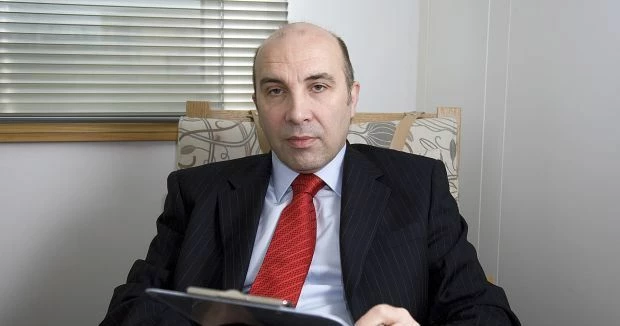
Partner Article
Policing reform must be balanced
Lord Stevens’ report has hit our desks, suggesting radical reshaping of the police. Lord Stevens was an effective police commissioner, as he was a police officer.
The report suggests major changes, including the merging of: forces; oversight bodies; community policing as well as Police Chartership. The report recommends the removal of Police and Crime Commissioners in 2016 – they have just celebrated their first anniversary. Hardly a fair innings for an approach that tries to address the very problems the report alludes to. Curious recommendations are included, such as giving the local authorities say in key appointments - like they know more than the ordinary citizen!
Labour, of course, having commissioned the Stevens report, will grasp on some of its more radical aspects like a starving squirrel grappling with the last peanut on earth, so devoid is the party of any coherent policies and financial competence at present.
As for the rest of us, there is a real issue here which is the integrity, stability and public confidence that is to be had in policing. As for the honest, hardworking and integral police officers, their service has never been under the microscope as much as it now is. Their many successful police interventions pale against the impact of a much smaller but significant number of miscreances that cannot be overlooked by the public.
“Plebgate” has been a reflection of this, but so has the indifferent style of some police investigations over the years, with Leveson, Jimmy Savile, Hillsborough, Harold Shipman, Stephen Lawrence and other notable cases, where people literally hid in plain sight with either celebrity or deference to status seeming to have circumvented the usual exercise of appropriate police power.
The apparent collusion by representatives of the police federation over the Plebgate incident, seals the public’s increasing doubt as to the integrity of our police forces. Indeed many academics view the police as the greatest challenge for modernisation and change within our public services.
Without doubt change is coming to the modern police force. They have already had to engender 20% cuts in times of adversity. Police and Crime Commissioners have had a difficult start in the light of this and other factors. Though far better known by the public now than the police authorities they replaced, they still have some way to go and need time to effectively enter the public psyche as the true representatives of the local community policing priorities.
The “centre” also appears threatened by the police when their misuse of power can result in a member of the cabinet being forced to resign with closed lipped, closed ranked silences before the truth started to come out.
Some in academia argue that the police have increasingly sought to become something the public cherish and regard whereas their credibility is best gained when they command respect, both in the exercise of authority and the ethical administration of their power.
It is an uncertain future. What the public deserves however is a modern, fit for purpose, transparent police force where ethics and accountability are well maintained. Where complaints can be dealt with sensibly in a mediated, and arbitrated manner without the endless bureaucracy or referrals to the IPCC, where the ordinary citizen, who feels aggrieved, has a right to redress despite the fact he may lack the friends, connections and self-advocacy of well-educated cabinet ministers such as Andrew Mitchell as he himself conceded recently.
It is when these injustices are exposed, not the injustices simply pertaining to the great and the good, we will have truly modern policing.
Equally, for our most dedicated police officers, who have to deal with more offensive behaviour, threat, stress and thankless tasks than many of the rest of our citizens, we need to remember the good works of our police service far outweigh the poor. They need the support of the community and the protection of processes that are rapid, primarily learning focused, (as opposed to punishment focused, accepting that people sometimes can make mistakes, where these matters can be put right without the cost of their careers in many cases.
There is much to address in the police in the years ahead. But let’s celebrate also being able to enjoy far more freedoms in an organised society under their stewardship than in many countries. Let’s look for an evolving service supported by sensible cross party debates rather than bringing the usual knee jerk party squabbles in. It’s just too important for the ordinary citizen.
In all things, balance please….
David Cliff is Managing Director of Gedanken and Vice Chairman of the Institute of Directors’ County Durham and Sunderland Committee.
This was posted in Bdaily's Members' News section by David Cliff .
Enjoy the read? Get Bdaily delivered.
Sign up to receive our daily bulletin, sent to your inbox, for free.








 Raising the bar to boost North East growth
Raising the bar to boost North East growth
 Navigating the messy middle of business growth
Navigating the messy middle of business growth
 We must make it easier to hire young people
We must make it easier to hire young people
 Why community-based care is key to NHS' future
Why community-based care is key to NHS' future
 Culture, confidence and creativity in the North East
Culture, confidence and creativity in the North East
 Putting in the groundwork to boost skills
Putting in the groundwork to boost skills
 £100,000 milestone drives forward STEM work
£100,000 milestone drives forward STEM work
 Restoring confidence for the economic road ahead
Restoring confidence for the economic road ahead
 Ready to scale? Buy-and-build offers opportunity
Ready to scale? Buy-and-build offers opportunity
 When will our regional economy grow?
When will our regional economy grow?
 Creating a thriving North East construction sector
Creating a thriving North East construction sector
 Why investors are still backing the North East
Why investors are still backing the North East